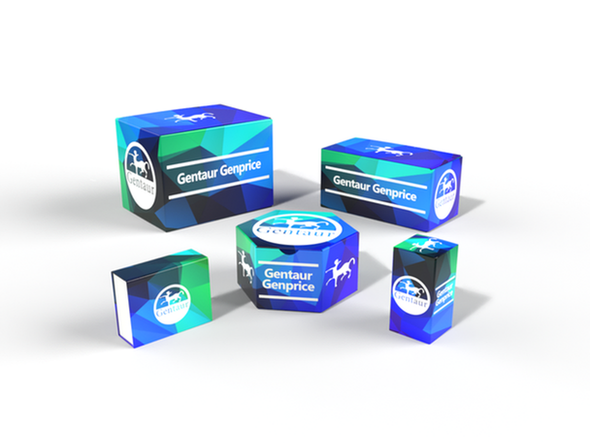740
Sheep Tri-iodothyronine (T3) ELISA Kit | AE63297SH
- SKU:
- 740-AE63297SH
- Availability:
- Usually ships in 5 working days
Description
Sheep Tri-iodothyronine (T3) ELISA Kit | AE63297SH | Gentaur UK, US & Europe Distribution
Species Reactivity: Sheep (Ovis aries)
Abbreviation: T3
Alternative Name: 3, 3', 5-Triiodo-L-Thyronine; Liothyronine; Cytomel; Tertroxin
Application: ELISA
Range: 123.5-10000 pg/mL
Sensitivity: 51.7 pg/mL
Intra-Assay: ≤4.7%
Inter-Assay: ≤8.6%
Recovery: 1, 06
Sample Type: Serum, Plasma, Other biological fluids
Detection Method: Sandwich
Analysis Method : Quantitive
Test Principale: This assay employs a two-site sandwich ELISA to quantitate T3 in samples. An antibody specific for T3 has been pre-coated onto a microplate. Standards and samples are pipetted into the wells and anyT3 present is bound by the immobilized antibody. After removing any unbound substances, a biotin-conjugated antibody specific for T3 is added to the wells. After washing, Streptavidin conjugated Horseradish Peroxidase (HRP) is added to the wells. Following a wash to remove any unbound avidin-enzyme reagent, a substrate solution is added to the wells and color develops in proportion to the amount of T3 bound in the initial step. The color development is stopped and the intensity of the color is measured.
Product Overview: Under normal physiological conditions, T3 represents approximately 5 percent of the thyroid hormones in serum. Although present in lower concentration, T3 has a greater intrinsic metabolic activity, faster turnover and larger volume of distribution than circulating T4. Reports that thyrotoxicosis may be caused by abnormally high concentrations of T3 rather than T4 have reinforced the importance of T3 measurements. In addition, T3 determination is an important tool for monitoring hypothyroid patients receiving sodium liothyronine therapy. Unlike "T3 Uptake" tests, which estimate the saturation of thyroid hormone binding proteins, total T3 analysis measures circulating levels of triiodothyronine. Most reports indicate that T3 levels distinguish clearly between euthyroid and hyperthyroid subjects, but provide a less clear-cut separation between hypothyroid and euthyroid subjects. Numerous conditions unrelated to thyroid disease may cause abnormal T3 values.
Stability: The stability of ELISA kit is determined by the loss rate of activity. The loss rate of this kit is less than 5% within the expiration date under appropriate storage condition. The loss rate was determined by accelerated thermal degradation test. Keep the kit at 37°C for 4 and 7 days, and compare O.D.values of the kit kept at 37°C with that of at recommended temperature. (referring from China Biological Products Standard, which was calculated by the Arrhenius equation. For ELISA kit, 4 days storage at 37°C can be considered as 6 months at 2 - 8°C, which means 7 days at 37°C equaling 12 months at 2 - 8°C) .






